World Class Breast Care in a Patient-Centered Environment
The Hewitt Center for Breast Wellness at Griffin Hospital combines state-of-the-art technology, a team of highly trained physicians and staff, and a Planetree healing environment to offer our patients a comprehensive range of personalized breast care and wellness services.
The Center features two new, state-of-the-art digital mammography suites, two breast ultrasound suites, and an advanced system to perform stereotactic biopsy.
Mammography Appointments
Early detection saves lives, and we’ve made it easy for you to schedule your mammography appointment. Griffin offers flexible appointment times at the Hewitt Center for Breast Wellness at Griffin Hospital which combines advanced technology, a team of highly trained physicians and staff, in a serene and calming facility to help ease the stress of annual testing.

How can we help you?
Call 203-732-1540 to schedule an appointment, speak with a patient navigator, or ask us anything else!
Services
Breast Imaging
Griffin Health combines state-of-the-art technology, a team of highly trained physicians and staff, and a Planetree healing environment to offer our patients a comprehensive range of personalized breast care and wellness services.
Breast Surgery
Griffin Health’s surgical team is well versed in the latest techniques in breast care, from minimally invasive biopsies to oncolplastic surgeries for breast cancer.
Hidden Scar Surgery
Griffin Health can offer you Hidden Scar breast surgery, which minimizes incisions and hides scars without compromising clinical results.
Medical Oncology
The Center for Cancer Care at Griffin Hospital is home to the renowned physicians of Smilow Cancer Hospital Care Center, New England’s largest medical oncology group.
Radiation Oncology
Griffin offers the most advanced technologies available in medicine today, including Intensity Modulated Radiation Therapy (IMRT) and Image Guided Radiation Therapy (IGRT), together with the medical expertise of Yale Therapeutic Radiology, one of the largest and most well respected groups of radiation oncologists in the region.
Genetic Counseling & Testing
The Hewitt Center for Breast Wellness offers individuals important insight into their hereditary risk for developing breast cancer with its High-Risk Breast Cancer Clinic.
Most cancers are caused by harmful changes, known as mutations, in a person’s genes. Many mutations happen by chance and others are thought to be caused by lifestyle and environmental factors. Other mutations, however, are passed down through our family and can be related to hereditary cancer. People at risk for hereditary cancer may develop breast cancer, as well as other cancer types, at an earlier than average age. All individuals with a family history of cancer, including breast and ovarian, should consider genetic testing.
Click here to take a genetics risk assessment questionnaire.
By concentrating this world-class technology with the talent of highly skilled professionals — including breast surgeon Denise Barajas, MD, a team of board-certified radiologists, technologists specializing in breast imaging, breast health navigators, and the availability of genetic counseling services — under the same roof, the Center can quickly assemble the resources required to provide optimal care that is tailored to each patient’s individual needs.
The Center offers a broad array of diagnostic services for patients that can be provided, in many cases, on the same day. For example, if a suspicious finding on a screening mammogram is detected, patients have ready access to additional diagnostic testing, which is coordinated by the Center’s staff and serves to greatly reduce a patient’s anxiety of waiting for the next test or diagnosis to take place.
Within the Center, soothing colors, comfortable furnishings, and other amenities — such as a coffee bar and water feature — create intimate spaces for patients and family members. Complementing this healing environment, the Center’s staff is committed to educating and empowering patients to be active participants in their own care journey.
Starting Saturday June 5, 2021, we will be offering Saturday mammogram screening hours – available from 7am-3pm every Saturday.
Patient Care Navigation
Even with the most caring and attentive doctors and staff, cancer care can often be overwhelming. It’s not easy to manage everything that’s going on, but having someone on your side, helping you navigate the course of your care and treatment, can make things a little easier.
-
Support
Circle of Friends
No one has to face breast cancer alone. The Circle of Friends breast cancer support group is here to provide support through information, empowerment and peer support.
“Moving On” Fitness
Moving On Fitness helps breast cancer survivors move forward by staying fit and healthy.
HUGS (Help Unlimited Griffin Support)
HUGS (Help Unlimited Griffin Support) is a cancer and chronic disease management support group open to patients, and/or family and friends who are struggling with care management, survivorship, and related issues.
Prostate Cancer Support Group
The Prostate Support Group is here to provide support through information, empowerment, and peer support.
Caregivers Support Group
The Caregivers Support Group is here to provide assistance through information, empowerment, and peer support.
Hairs to You
Hairs to You is a private wig consultation and fitting program offered by The Center for Cancer Care at Griffin Hospital.
Little Wonders
Free tickets to local theaters, concerts and supporting events for our cancer patients who are in active treatment at the Center for Cancer Care and their loved ones.
-
Quality
Breast Imaging Excellence
The American College of Radiology (ACR) has recognized The Hewitt Center for Breast Wellness at Griffin Hospital as a designated Breast Imaging Center of Excellence. This designation for achieving accreditation in mammography, stereotactic breast biopsy, and breast ultrasound (including ultrasound-guided breast biopsy).
Griffin Hospital is also accredited in breast MRI.
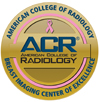
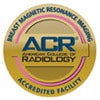
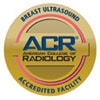
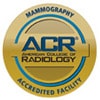
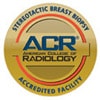
Outcomes of procedures performed at the Hewitt Center for Breast Wellness, according to the Commision on Cancer, are some of the best in the country:
- Radiation therapy is administered within 1 year (365 ays) of diagnosis for womeen under age 70 receiving breast conserving surgery for breast cancer: 2020 – 100%
- Tamoxifen or third generation aromatase inhibitor is recommended or adminsitered within 1 year (365 days) of diagnosis for women with AJCC T1cN0M0, or stage 1B – III hormone receptor-positive breast cancer: 2020 – 92%
- Image or palpation-guided needle biopsy to the primary site is performed to establish diagnosis of breast cancer: 2020 – 100%
The Center has also achieved National Accreditation Program for Breast Centers (NAPBC) accreditation. Accreditation by the NAPBC is only given to those centers that undergo a rigorous evaluation process and review of their performance and demonstrate the highest level of quality breast care.
Griffin Hospital’s Mammography Department is MQSA (Mammography Quality Standard Act) and ACR (American College of Radiology) accredited.
Clinical Trial Faqs
-
Who is a candidate
At the Center for Cancer Care at Griffin Hospital, we are committed to providing access to a full range of cancer services, and this includes access to clinical trials. Our multidisciplinary tumor boards are an opportunity for your physician to discuss the details of your results with a team of colleagues and develop a recommendation for treatment, including clinical trials. Your physician will discuss with you whether there are open clinical trials that may be right for you. Please read the information below to learn more about clinical trials. -
What are clinical trials
Clinical trials for cancer are research studies that involve people who either have or are at risk of getting cancer. They are designed to evaluate promising new treatments. Clinical trials are the most important tool that doctors and researchers have in their effort to find new and more effective ways to treat and possibly cure cancer. Many of today’s standard treatments for cancer began in clinical trials, and many people treated for cancer are now survivors thanks to the knowledge gained through those clinical trials.
According to the American Society of Clinical Oncology nine out of ten women with breast cancer are alive 5 years after their diagnosis and breast cancer mortality has fallen by more than a third since its peak in the 1980’s. Listed below are just a few of the many treatments that have prolonged lives, boosted cure rates and improved quality of life for women diagnosed with breast cancer:
- 1977 – Breakthrough drug, Tamoxifen, approved for advanced breast cancer
- 1986 – Tamoxifen is approved as standard therapy for post menopausal women following breast cancer surgery as studies showed that use of the drug for 5 years after surgery significantly reduced the risk of recurrence
- 1998 – FDA approves groundbreaking drug, trastuzumab (Herceptin), first targeted anti‐cancer drug, and dramatically improves survival for women with advanced cancer that over produce a protein called HER2.
- 1998 – Tamoxifen approved to reduce the risk of developing breast cancer in women identified as high risk for the disease.
- 2006 – Herceptin is approved as part of therapy after surgery for all women with Her2‐positive breast cancer reducing risk of recurrence by 50%
- 2011 – A large phase III trial shows Aromasin greatly reduces the risk of developing invasive breast cancer in post-menopausal women at very risk for breast cancer. This includes women with BRCA gene mutations and carries milder side effects than Tamoxifen.
- 2013 – FDA approves T‐DM1, a next‐generation targeted drug called Trastuzumab emtanine which extends survival in women with HER2 positive cancer that has progressed despite other standard treatments.
-
How do Clinical Trials work
Clinical trials are conducted in distinct phases as described below. In order for a treatment to become standard, it must first go through 3 or 4 phases. Each phase has a distinct purpose. The early phases make sure the treatment is safe. The later phases are evaluating if new treatment works better than the standard treatment. On average it takes at least 6 years of research before a cancer drug makes it to a clinical trial and on average another 8 years from the time a cancer drug enters a clinical trial until it is approved by the Food and Drug Administration (FDA) as the new standard treatment. -
Phase I Clinical Trial – Is the treatment safe?
This is the first step in testing a new treatment in humans. The main objective is to determine the highest dose of a new treatment that can be given safely without serious side effects. Phase 1 clinical trials usually involve a small number or volunteers (15- 30) and take place in large teaching hospitals or cancer centers, where volunteers can be watched closely.
Phase I Clinical Trials:
- What route is the safest to administer this new drug (by mouth, injected into the blood or in injected into a muscle)
- How often should the drug be given
- What dosage is safe
- What are the side effects on the human body
-
Phase II Clinical Trial – Does the treatment work?
Once a new treatment has been found to be reasonably safe in a phase I trial it will move into a phase II trial. Here researchers learn more about its effectiveness and safety. They are looking for evidence that the treatment is working on the cancer (tumor shrinks, disappears or there’s a longer period of time before the cancer gets larger or comes back). In phase II trails the new treatment is given to larger numbers of volunteers (25-100) and can take place in local community hospitals or doctors’ offices.
Phase II Clinical Trials:
- Designed to assess if the treatment works on a specific type of cancer
- All volunteers get the same dose by the same method found to be the safest and most effective in the phase I trial
- No placebo is used (placebos are generally not used in cancer clinical trials)
-
Phase III Clinical Trial – Is it better than what we already have?
In this phase the safety and effectiveness of the new treatment is now compared against the current standard treatment. Most phase III trials involve a large number of volunteers (hundreds to thousands) in order to determine the true effectiveness of the treatment. Phase III clinical trials are needed before the FDA will approve a new drug for use by the general public.
Phase III clinical Trials:
- Larger number of trails available to volunteers geographically
- Trials can be found in local oncology offices, clinics and cancer centers across the country
- Phase III trials are randomized in which one treatment group receives the new treatment being studied and the other group receives the standard treatment currently in use.
- Participants continue to be monitored very closely
-
Phase IV Clinical Trial – what else do we need to know?
Phase IV trials take place after a new treatment has been approved by the FDA and made available to the public. The purpose of these trails are to see how safe and useful the treatment will be over the long term, how well the drug works in combination with other treatments and its effectiveness on other types of cancer. -
Phase IV Clinical Trial – what else do we need to know?
Usually insurance will cover all standard of care treatments such as exams, laboratory work, X-ray, etc. (standard of care is the routine care provided for a disease). All additional clinical trials related therapies or laboratory studies may be paid for by the sponsor of the clinical trial. Patients should ask their doctor what is covered by their insurance to ensure that their out-of-pocket costs have been explained to fully. -
How do Clinical Trials work
Clinical trials are conducted in distinct phases as described below. In order for a treatment to become standard, it must first go through 3 or 4 phases. Each phase has a distinct purpose. The early phases make sure the treatment is safe. The later phases are evaluating if new treatment works better than the standard treatment. On average it takes at least 6 years of research before a cancer drug makes it to a clinical trial and on average another 8 years from the time a cancer drug enters a clinical trial until it is approved by the Food and Drug Administration (FDA) as the new standard treatment.
Myths and Truths about clinical trials
Myths and Truths About Clinical Trials
People who take part in clinical trials stand to benefit from promising new treatments that are not available to everyone. Participants also have the opportunity to contribute valuable information to research that might help other cancer patients in the future. Some common myths and facts about clinical trials provided by the National Comprehensive Cancer Network include:
Myth In a clinical trial, you are little more than a human guinea pig in a lab experiment.
Truth In designing clinical trials, physicians have two concerns: that all patients who participate receive the highest quality medical care, and that rigorous scientific principles are followed to allow meaningful conclusions to be drawn. Compelling evidence must exist that suggests that the investigational drug or other therapy is at least as good as the standard. In every clinical trial, patient welfare and safety are the major considerations.
Myth Once you are enrolled in a clinical trial, you must continue, even if you change your mind.
Truth Clinical trial participants always have the right to withdraw—at any time, for any reason.
Myth If you take part in a clinical trial, you might receive a placebo (a pill, liquid or powder that contains no medicine; sometimes called a “sugar pill”) instead of real medicine.
Truth Few cancer clinical trials use placebos, and they are never given to cancer patients in place of treatment. Cancer patients who take part in clinical trials must receive at least the best standard treatment available. In many cases, they will receive a new and better therapy being evaluated.
Myth If you are thinking of enrolling on a clinical trial, you won’t be told in advance about everything that’s going to happen.
Truth The rights and interests of people who enroll in clinical trials are carefully protected by an Internal Review Board (IRB) and the Food & Drug Administration (FDA). In a process called informed consent, anyone who is thinking about enrolling in a clinical trial must receive detailed information about the study so they can make an informed decision about participating.
Myth You should enroll in a clinical trial only if there are no other treatment options left.
Truth Most cancer patients should consider participating in a clinical trial as one of their treatment options. There are trials for all different types and stages of cancer. Participants are monitored carefully throughout the trial, so they receive excellent care and can be the first to benefit from new treatments before they are available to everyone.
Your Rights and Protection
There are multiple safeguards in place to protect the welfare of the people who take part in clinical trials. Government agencies such as The Office Human Research Protections, Food and Drug Administration (FDA) and The National Cancer Institute who play a role in ensuring that all research is conducted with patient safety in mind. In addition, each institution, cancer center or hospital that conducts clinical trials has a committee called an Institutional Review Board (IRB) that reviews each trial to make sure it is safe and ethical.
Another, and probably the most important, protection for participants, is the process of informed consent. Informed consent is a process by which the people (doctors, researchers, nurses) running the study are required to thoroughly explain all the details about the study including the purpose of the study, tests and procedures used and the possible risks and benefits of the new treatment. Once you feel fully informed you will be asked to sign a written consent form so you can take part in the study.
Learn More About Clinical Trials
BreastCancerTrials.org
1-415-476-5777
Coalition of Cancer Cooperative Groups
CancerTrialsHelp.org
1-877-520-4457
The National Cancer Institute
cancer.gov/clinicaltrials
1-800-422-6237
National Cancer Institute’s Center for Cancer Research
ccr.cancer.gov/
1-888-624-1937
National Institutes of Health
clinicaltrials.gov
Other Resources
American Cancer Society
cancer.org
1-800-227-2345
Cancer Care
cancercare.org
1-800-813-HOPE (4673)
Patient Information from the American Society of Clinical Oncology
cancer.net
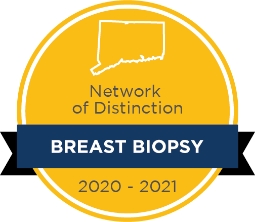
Get Rewarded for Choosing High-Quality Care
Connecticut State Employees and State Health Plan members can now earn a cash reward for choosing this high-quality service for their healthcare needs through the State of Connecticut Network of Distinction program. To get started book an appointment through your State Health Navigator at (866) 611-8005 or at https://members.healthadvocate.com/Account/OrganizationSearch.

Treatment Specialties
Diagnostic Navigation
Your navigator, advocate and friend. Our Diagnostic Navigation Staff personify the seamless and thoughtful care environment provided at the Center for Breast Wellness, providing coordinated, accessible and compassionate care. When patients need additional diagnostic testing, such as ultrasound or stereotactic biopsy, Diagnostic Navigators are assigned to assist them as patient advocates. The Diagnostic Navigation role includes coordinating appointment schedules, helping. Find out more here.
Mammography
Mammography Saves Lives We understand that there are conflicting reports around when and how often women need screening mammography. At the Hewitt Center for Breast Wellness, we recommend that women at average risk start having annual mammograms at age 40. “The ACR (American College of Radiology) recommends annual mammography screening starting at age 40 for women of average risk of. Find out more here.
Bilateral Breast MRI
MRI for detailed diagnosis. In order to fully evaluate the extent of disease and to check the lymph nodes in the axilla (armpit) and the opposite breast, we will ask for a bilateral breast MRI. We use MRI because we want to know as much information about you in order to offer the best options to you as a patient.. Find out more here.
Breast
The Hewitt Center for Breast Wellness at Griffin Hospital combines state-of-the-art technology, a team of highly trained physicians and staff, and a Planetree healing environment to offer our patients a comprehensive range of personalized breast care and wellness services. The Center features two new, state-of-the-art digital mammography suites, two breast ultrasound suites, and an advanced system to perform stereotactic biopsy.. Find out more here.
Breast Biopsy
Breast biopsy provides answers. A breast biopsy is the removal of breast tissue to examine it for signs of breast cancer or other disorders. Different types of biopsy may be done. One type called stereotactic breast biopsy uses mammography to help pinpoint the spot in the breast that needs to be removed. At the Hewitt Center for Breast Wellness, we. Find out more here.
Breast Imaging
Griffin Health combines state-of-the-art technology, a team of highly-trained physicians and staff, and a Planetree healing environment to offer our patients a comprehensive range of personalized breast care and wellness services, including multiple Breast Imaging services. Breast Imaging Services Mammography A mammogram is an x-ray picture of the breast. Screening mammograms are used to check for breast cancer in women. Find out more here.
Breast Ultrasound
Ultrasound is becoming an increasingly prevalent screening and diagnostic tool. It is an excellent imaging modality for women with dense breast tissue, as well as providing a second look when initial mammography results are inconclusive. In addition to dense breast screenings, ultrasound can be used to evaluate diagnostic concerns, such as lumps and pain localized to the breast in both. Find out more here.
Ultrasound
Imaging for a clearer view. Griffin Hospital’s ultrasound suite consists of two private examination rooms equipped with individual imaging units, and our staff consists of highly trained, nationally certified sonographers through the American Registry of Diagnostic Medical Sonographers (ARDMS). Our sonographers are highly competent and skilled in performing abdominal, gynecological, small parts, intra-operative, vascular, and breast ultrasound examinations. Interventional ultrasonography procedures, such. Find out more here.
Breast Reconstruction Surgery
Surgical Options Sometimes, surgery is needed to remove all or part of the lump so that it can be checked for cancer cells. Surgical biopsies are usually done in an outpatient clinic, so you don’t have to stay overnight. For these biopsies you are given local anesthesia (you are awake, but drugs are used to make your breast numb). You. Find out more here.
Hidden Scar Surgery
The hidden breast cancer treatment You are so much more than your breast cancer. After surgery, we want you to look in the mirror and see: Strength Courage Confidence Life … not your scars. But now … you have a choice. The Hewitt Center for Breast Wellness at Griffin Hospital is the first facility in Fairfield County to be certified in Hidden. Find out more here.
Chemotherapy
The what, why and how of Chemotherapy: Chemotherapy (also called chemo) is a type of cancer treatment that uses drugs to destroy cancer cells. Chemotherapy works by stopping or slowing the growth of cancer cells, which grow and divide quickly. Depending on your type of cancer and how advanced it is, chemotherapy can: Cure cancer—when chemotherapy destroys cancer cells to. Find out more here.
Hormonal Therapy
Is hormone therapy right for me? If a breast cancer is “hormone receptor positive,” then the patient is a candidate for hormonal therapy. How does hormonal therapy work? This consists of taking an “anti-hormone” pill (Tamoxifen, Arimidex, Femara, or Aromasin) on a a daily basis for approximately five years after surgery to reduce the likelihood of the same type of. Find out more here.
Radiation Therapy
Slowing the growth and stopping the spread of cancer cells. Radiation therapy (also called radiotherapy) is a treatment for cancer that uses high doses of radiation to kill cancer cells and stop them from spreading. Low doses of radiation are used in common activities such as X-rays of your teeth or bones, yet when given in high doses, radiation kills. Find out more here.
CT (Computed Tomography)
Low-dose with high accuracy. One of the latest technological advances that Griffin Hospital has obtained is the GE Optima 660i 128 slice Computed Tomography (CT) system. This equipment provides rapidly acquired, highly detailed images of the human body. This scanner’s speed has reduced the length of time that patients spend on the CT scanner without compromising overall image quality. The. Find out more here.
Cancer (Oncology) Rehabilitation
The Highest Level of Survivorship Services In recent years, there has been much talk about creating survivorship as a distinct phase of cancer care and providing each patient with a survivorship care plan. At The Center for Cancer Care at Griffin Hospital, we are committed to offering the best available survivorship services. This is why we have implemented Oncology Rehabilitation. Find out more here.
Radiation Oncology
Comprehensive. Comforting. Close to home. Our team of doctors and physicists develop plans for individualized treatment by using a spectrum of leading technology and advanced radiotherapy techniques, resulting in better outcomes and less side effects. In partnership with Yale Medicine, our medical staff comprehensively evaluate and treat patients in need of any form of radiation therapy. We have extensive expereince. Find out more here.
Magnetic Resonance Imaging(MRI)
Advanced technology, in a healing environment. Our staff of board certified and state licensed Radiologists and technologists ensure that your MRI exam is performed and interpreted using the latest imaging techniques. It is our goal to offer a comfortable, anxiety-free environment to our patients while providing exceptional imaging. We are proud of the fact that our MRI Department is recognized. Find out more here.
X-Ray (Radiography)
X-Ray (Radiography) FAQs What is X-Ray (Radiography)? X-rays are a form of electromagnetic radiation, just like visible light. In a health care setting, an x-ray machine generates individual x-ray particles, called photons. These particles pass through the body. At Griffin, a mix of both digital and computer-generated technologies are used to capture the images that are created. This information is. Find out more here.
Breast Surgery
Surgical Options Sometimes, surgery is needed to remove all or part of the lump so that it can be checked for cancer cells. Surgical biopsies are usually done in an outpatient clinic, so you don’t have to stay overnight. For these biopsies you are given local anesthesia (you are awake, but drugs are used to make your breast numb). You. Find out more here.
Same-Day Surgery Amenities
Amenitities for health and wellness A number of complementary services and amenities are available to patients and visitors to aid in healing and relaxation. More about Planetree at Griffin Hospital Guided Imagery Guided imagery is a relaxation technique that focuses your attention on pleasant images to replace negative or stressful feelings and relax. Guided imagery may be directed by you. Find out more here.
Outpatient Surgery Preparation
Preparing for Surgery Once you have decided to have surgery, there are steps you can take to make sure everything goes smoothly. Knowing what to expect and being prepared helps to make the process easier for everyone involved. Insurance Prior to surgery, an insurance verification specialist from Griffin Hospital will contact you to confirm your personal information and verify your. Find out more here.
Day of Surgery
What to Expect at the Hospital When you arrive, you may report directly to the Same Day Surgery Department for your scheduled appointment. The department is located on the ground floor of the hospital. Before Surgery Upon arrival in the Same Day Surgery Department you will be greeted by a member of the Same Day Surgery staff who will take. Find out more here.
Elekta Synergy Radiation Treatment System
Video Image Placeholder We know that the diagnosis of cancer may seem scary and that’s why The Center for Cancer Care at Griffin Hospital is committed to providing the very best in oncology care. The Center for Cancer Care at Griffin Hospital has the highest state-of-the-art Elekta Synergy radiation treatment system to help treat your cancer as aggressively as. Find out more here.



